Festivals in Ecuador are a spectacular reflection of the nation’s cultural diversity. These events mix indigenous customs, Catholic beliefs, and Spanish traditions. Every festival tells a story, some about history, others about nature or religion. From the bold dances of La Diablada de Pillaro to the sacred rituals of Inti Raymi, each event is unique. Travellers and locals enjoy these vibrant celebrations filled with music, colour, and food. If you want to understand the heart of the country, don’t miss these famous festivals in Ecuador.
The Cultural Significance Of Festivals In Ecuador
Festivals in Ecuador are not just about fun. They help preserve the country’s heritage. Generations have passed down the beliefs that root these festivals. They bring families and communities together.
1. La Diablada De Píllaro
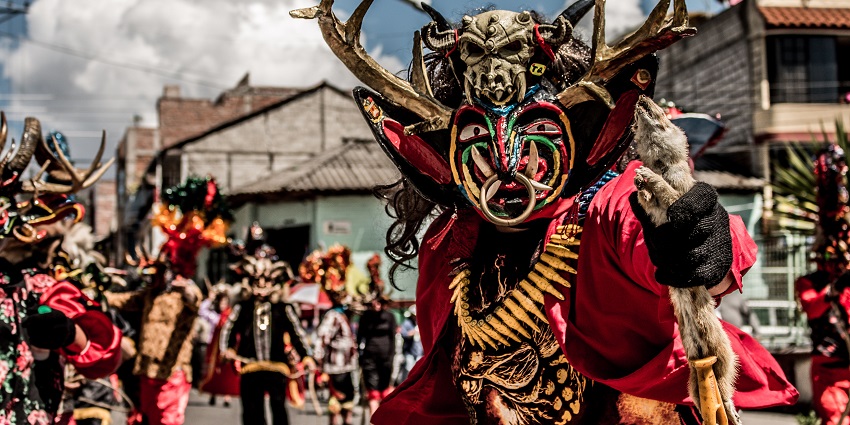
Photo: Paulakindsvater / Wikimedia Commons
La Diablada de Pillaro is one of the most energetic and meaningful festivals in Ecuador. The celebration features masked dancers dressed as devils parading through the streets. This striking image symbolises rebellion against colonial oppression. Indigenous people created the festival to mock Spanish authorities, and it has grown into a cultural highlight. Music, traditional food, and community gatherings are central to the week-long event. It is a vibrant mix of satire, storytelling, and tradition, celebrated with passion and pride in Pillaro.
Date: January 1st-6th
Location: Pillaro, Tungurahua Province
Major Attraction: Devil Mask Parade
2. Ecuadorian Mardi Gras
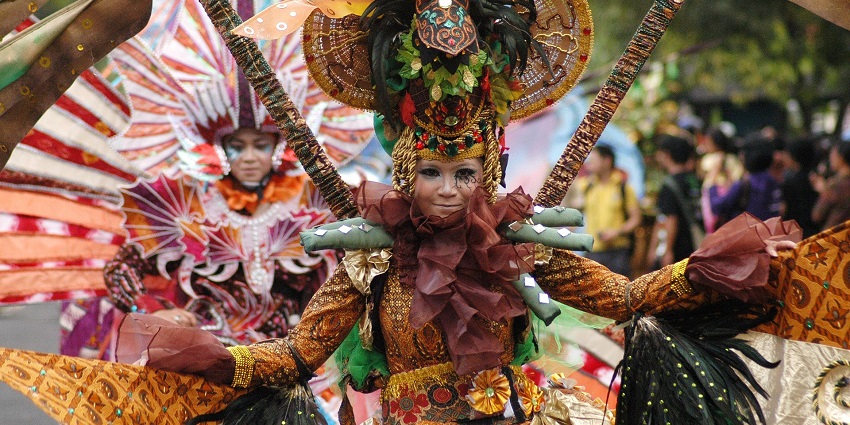
Photo: Dedy_Timbul / Pixabay / Image For Representation Only
Carnival is one of the liveliest and most playful festivals in Ecuador, celebrated before Lent begins. Across the country, people take part in water fights, throw flour, spray foam, and wear costumes. Parades with dancers, musicians, and colourful floats entertain crowds. Families gather to enjoy traditional dishes such as mote pata. This festival mixes Catholic and indigenous customs. Cities such as Ambato especially celebrate it alongside the Flower and Fruit Festival, creating a cheerful and unforgettable experience.
Date: February or March
Location: Nationwide
Major Attraction: Parades and water fights
3. Semana Santa
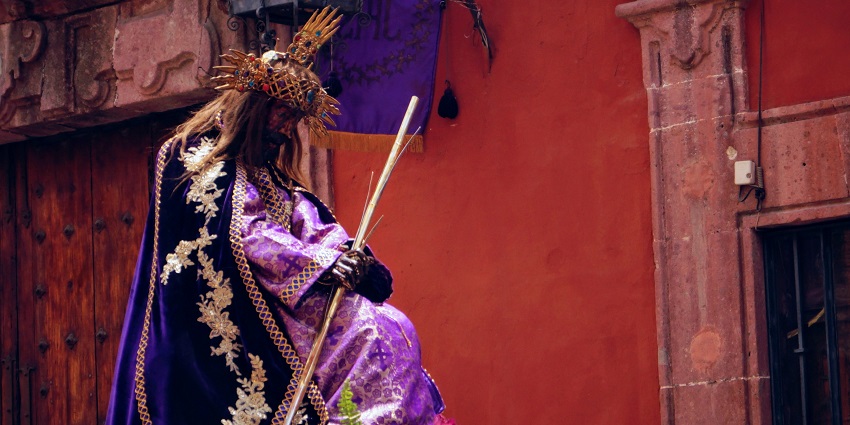
Photo: Almarosalinas / Wikimedia Commons
Semana Santa is among the most spiritual festivals in Ecuador, held during the week before Easter. Cities such as Quito and Cuenca host solemn processions, where people walk silently through the streets in devotion. Many wear purple robes and carry statues or wooden crosses. One of the main traditions is eating fanesca, a thick soup with grains and cod. This dish is only prepared during this time. Holy Week honours Christian beliefs, but also reflects Ecuador’s community values, offering both reverence and reflection.
Date: March or April (varies)
Location: Nationwide
Major Attraction: Good Friday Procession in Quito
4. Inti Raymi
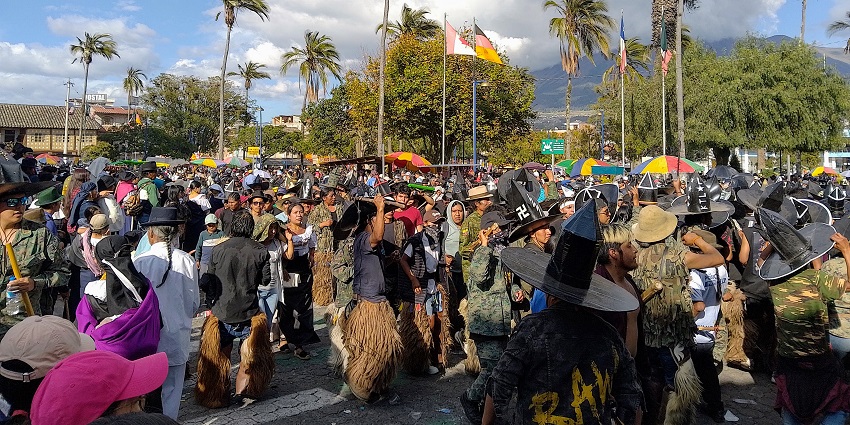
Photo: Arabsalam / Wikimedia Commons
Inti Raymi, the “Festival of the Sun,” is a sacred Andean celebration and one of the most spiritual festivals in Ecuador. It honours Inti, the sun god, and gives thanks for the harvest. The event blends indigenous rituals with Spanish Catholic elements. Ceremonies include dances, offerings, and music performed in traditional clothing. Participants show gratitude to Pachamama (Mother Earth) and ask for blessings. Towns such as Otavalo and Saraguro host colourful versions of this ancient Inca celebration, keeping the spirit of the Andes alive today.
Date: June 21st – 24th
Location: Nationwide (especially in Otavalo and Saraguro)
Major Attraction: Traditional harvest rituals and dances
5. Guayaquil Festival
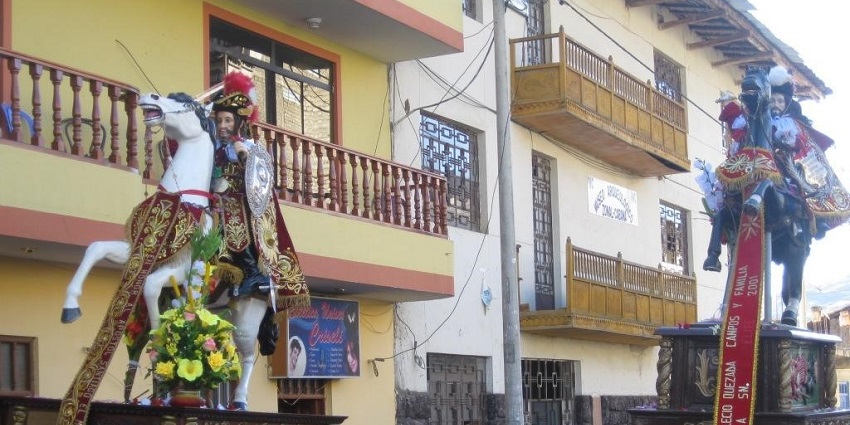
Photo: Cabanista / Wikimedia Commons / Image For Representation Only
The Guayaquil Festival, also known as Festival of Santiago del Mayor, is one of the proudest festivals in Ecuador, celebrating the founding of the city. Each July, Guayaquil comes alive with parades, concerts, and fireworks. Cultural fairs offer traditional food and artisan crafts, while beauty contests and art shows celebrate local talent. Major events take place on the riverfront of Malecón 2000, and patriotic pride is evident everywhere. This festival honours Guayaquil’s colonial history and its journey to becoming Ecuador’s largest and most dynamic coastal city.
Date: July 25th
Location: Guayaquil
Major Attraction: Historic Parade
6. Pachamama Raymi
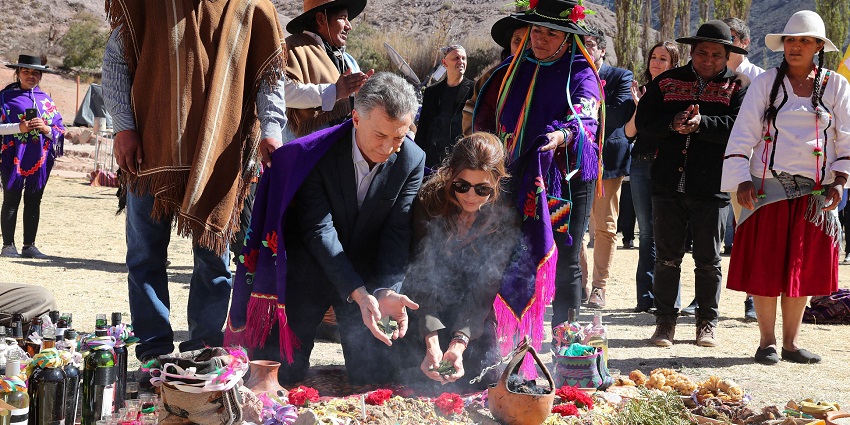
Photo: Presidencia de la Nación / Wikimedia Commons
Pachamama Raymi is a festival held to honour Pachamama, or Mother Earth. It is one of the most sacred festivals in Ecuador, particularly in Andean communities. People gather to thank nature for the food and life it provides. Offerings include flowers, grains, fruits, and chicha, a fermented corn drink. Elders or shamans lead rituals, often at sacred mountain sites. Music and dancing follow, turning the ceremony into a celebration. It reminds everyone of their duty to respect and protect the Earth.
Date: August 1st
Location: Various towns in the Andes
Major Attraction: Earth offering rituals
7. Ecuador Independence Day
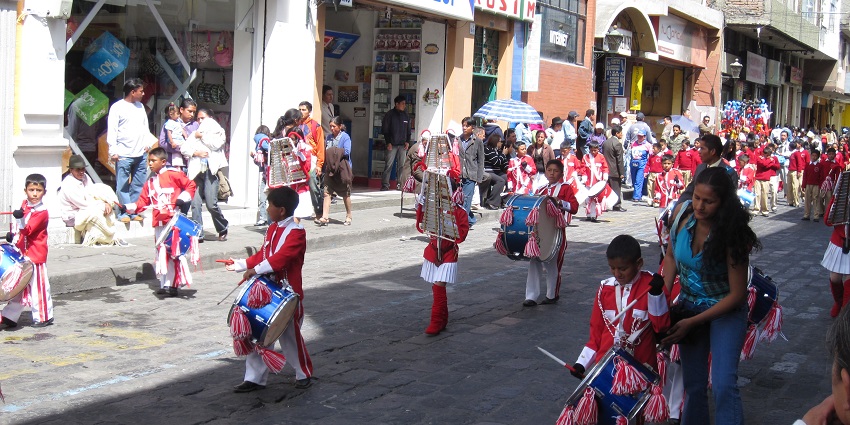
Photo: Jen / Wikimedia Commons / Image For Representation Only
Ecuadorians celebrate Independence Day nationwide; it’s one of the most patriotic and famous festivals in Ecuador. It marks Ecuador’s declaration of independence from Spain on August 10, 1809. Cities host military parades, flag-raising ceremonies, and concerts. People fill the public squares, dressed in national colours. Fireworks light up the sky, especially in Quito and Guayaquil. The day celebrates freedom, unity, and national pride. It’s a time for Ecuadorians to reflect on their history and honour the people who shaped their nation.
Date: August 10th
Location: Nationwide
Major Attraction: Patriotic parades in the capital
8. Kako Wiinae Festival
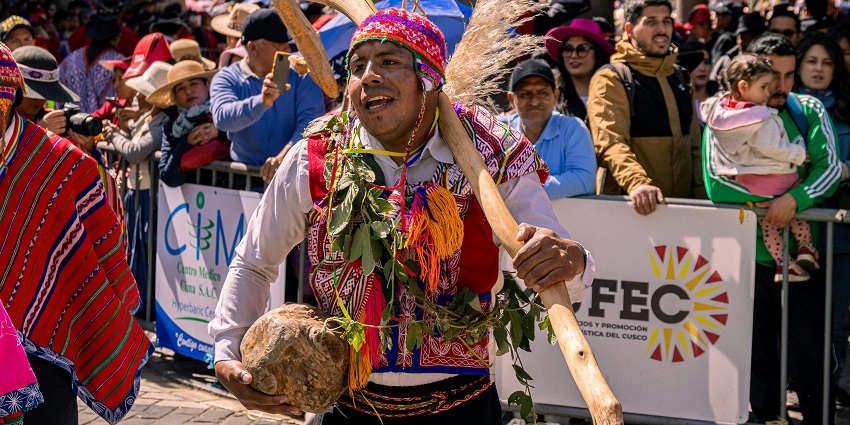
Photo: Joel Alencar / Pexels / Image For Representation Only
The Kako Wiiñaë Festival is one of the lesser-known but deeply spiritual festivals in Ecuador. Celebrated by the Siekopai people in the Amazon, it marks their new year. Shamans perform ceremonies using sacred plants, including ayahuasca, to connect with the spiritual world. The event includes music, chants, and storytelling passed down through generations. It is a time for renewal, reflection, and community bonding. Visitors can join with permission, but must show respect for local traditions. It offers a rare view of Amazonian spirituality and customs.
Date: August 24th – 25th
Location: Cantesiaya, Amazon Region
Major Attraction: Shaman-led ceremonies
9. Mama Negra Festival
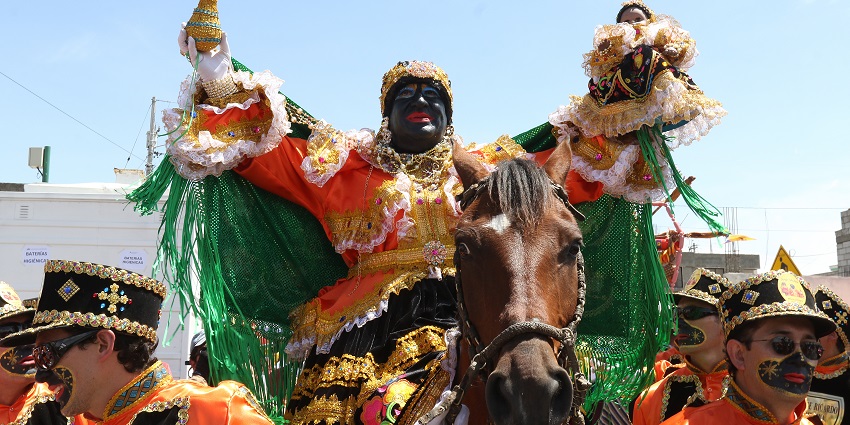
Photo: Agencia de Noticias ANDES / Wikimedia Commons
Mama Negra is one of the most colourful and theatrical festivals in Ecuador, celebrated in Latacunga. A man dressed in a black mask and bright costume portrays the central figure, Mama Negra, leading a parade full of music and satire. This unique festival blends African, Spanish, and indigenous traditions. It honours the Virgin of Mercy for protecting the town from past disasters. Dancers, musicians, and performers fill the streets with joy. It’s an unforgettable cultural spectacle with deep community meaning and fun surprises.
Date: End of September and mid-November
Location: Latacunga
Major Attraction: Mama Negra parade
10. Fiestas De Quito
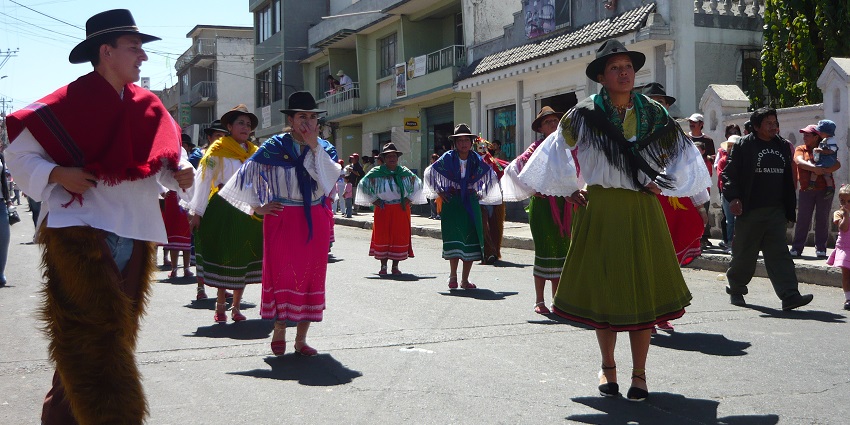
Photo: TupakAmaruIshkay / Wikimedia Commons
Fiestas de Quito marks the founding of Ecuador’s capital city and is among the most festive and lively festivals in Ecuador. Celebrated in early December, it includes concerts, street dances, bullfights, and school parades. One highlight is riding chiva party buses that travel through the city with live music and happy crowds. Locals wear traditional clothes and celebrate Quito’s colonial history. This week-long event brings the city to life, drawing visitors from across the country and beyond for nonstop entertainment and fun.
Date: December 6th
Location: Quito
Major Attraction: Chiva parades and live music
Festivals in Ecuador are more than just exciting events, they are living expressions of the country’s soul. These celebrations bring people together through music, dance, food, and heartfelt traditions passed down through generations. Whether you’re drawn to spiritual ceremonies, historical parades, or lively street parties, each event offers a unique experience. The famous Festivals in Ecuador reveal the country’s diverse heritage and vibrant energy. Plan your visit around these amazing festivals with TripXL, and you’ll leave with unforgettable memories and a meaningful connection to Ecuador’s rich and colourful culture.
Cover Photo: Arabsalam / Wikimedia Commons


 WhatsApp
WhatsApp
 Twitter
Twitter









